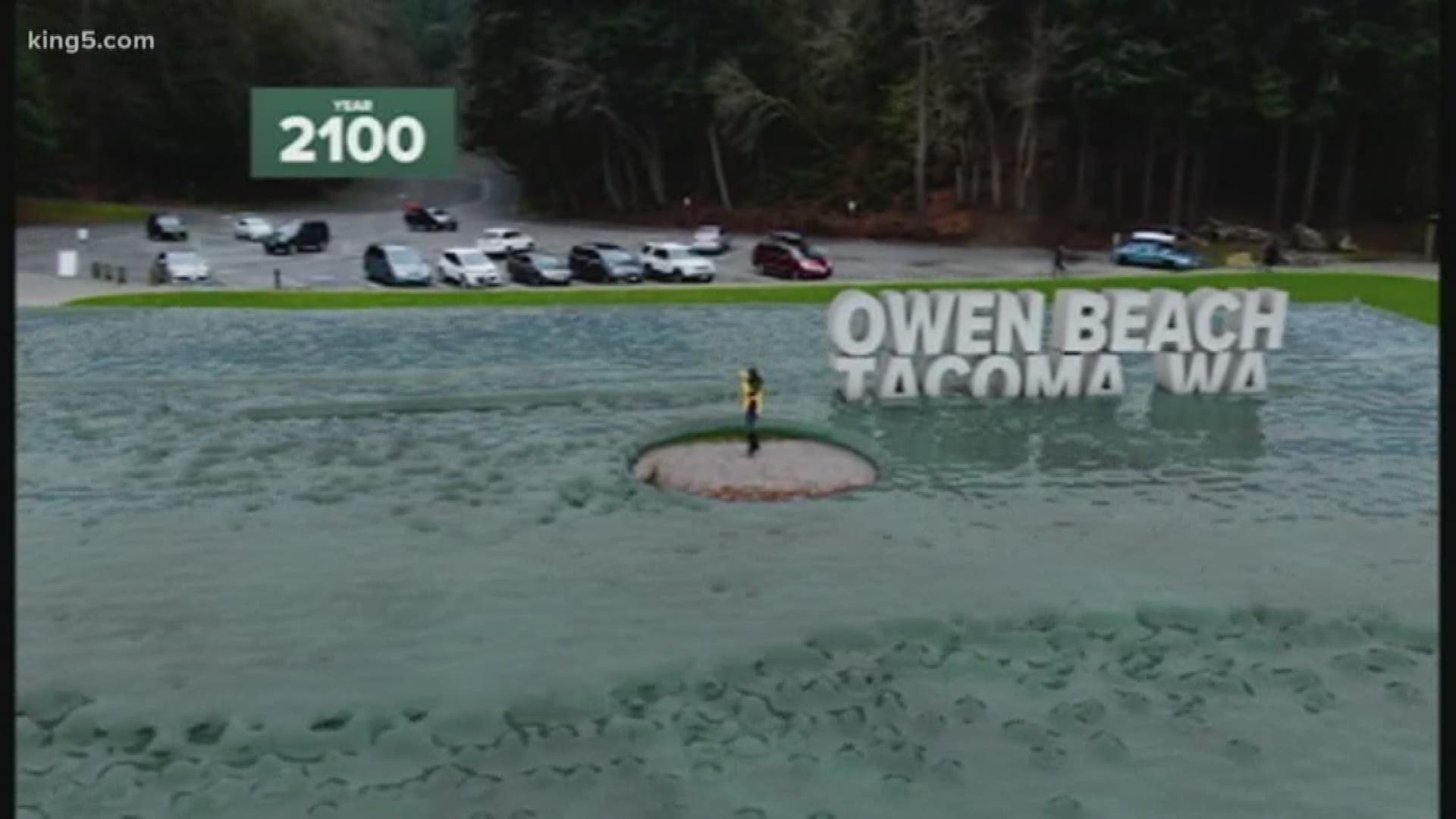TACOMA, Wash. — The sea level is rising and research shows a lot could change in the next 80 years.
Climate change projections of rising sea levels is one reason Tacoma is making major changes to one of its most popular beaches. It is using research from the University of Washington (UW) to redesign Owen Beach at Point Defiance Park.
Research from UW shows with continued high greenhouse gas emissions, by 2100 the global mean sea level rise is projected to be about 2.8 feet higher than it is today.
Marty Stump is the deputy director of planning and development for Metro Parks Tacoma. He said the renovation provides for long term sustainability.
“One of the things that we know now through the science is that through a slow and incremental rise of sea level, as well as an increase storm intensity and wave run-up on the beach, that if left in its current configuration, much of [Owen Beach] will not only be underwater but also subject to the erosive forces of those waves,” explained Stump.
The sea level is rising for a couple of reasons. The major cause of sea level rise so far is warming oceans, causing the water to expand. However, increasingly this century, the melt of land-based glaciers will contribute to the sea level rise.

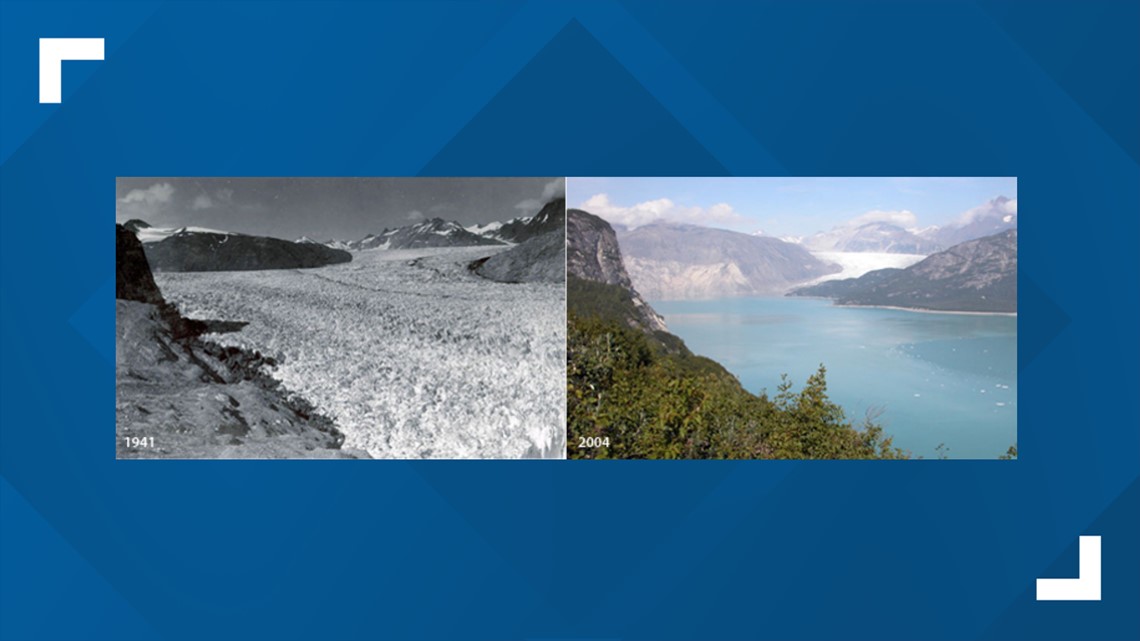
The rising water will impact people all over the world. In Washington state, 68% of the population live in counties that will likely be impacted by the rising sea level in some way. According to the National Oceanic and Atmospheric Administration, that’s 4.6 million people as of 2010.
Rising sea levels are expected to impact 3,026 miles of Washington’s coastline and 95,471 miles of shoreline across the United States.
“We anticipate at Owen Beach by the end of the century 3 to 4 feet of increased water level, if you looked at the static water level of the sound at high tide, but with storm surge, and the wave run-up, we are looking at a 5 to 6-foot impact in the long run,” Stump said.

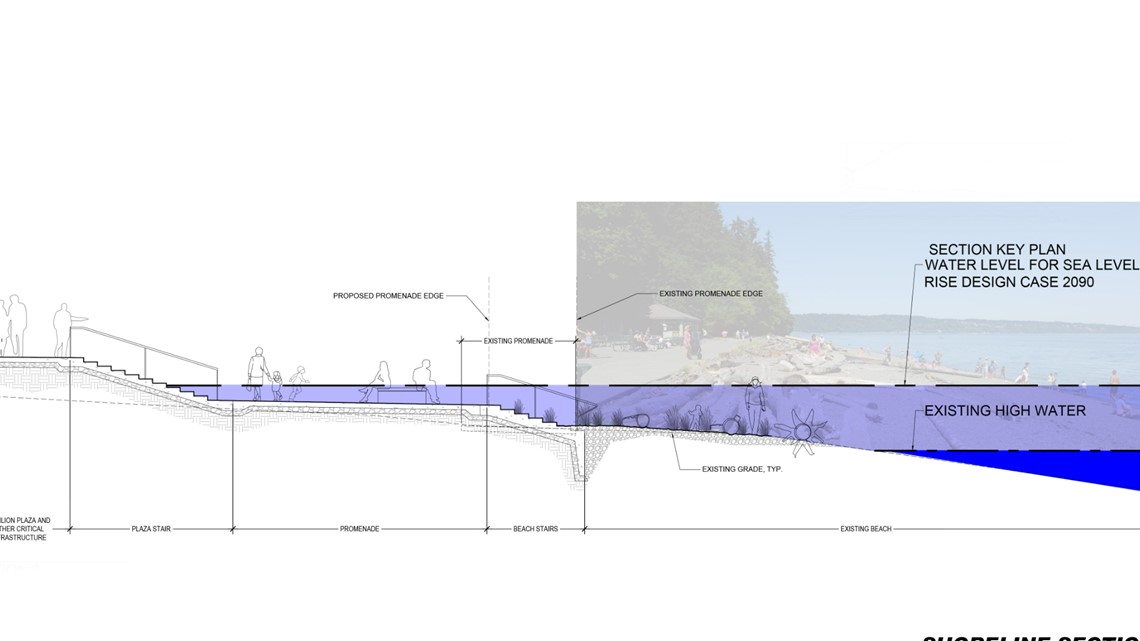
In order to plan for these projections, Metro Parks Tacoma is moving the beach and parking lot back and raising the ground higher. Stump described the move to KING 5 as a "strategic retreat."
“We are not trying to hold the sea back, rather we are retreating our improvements back in a way that provides for sort of a nature-based solution," said Stump. “So the beach will still have the driftwood, a lot more planting, naturalized planting, to soften the impact of sea level rise," he continued.

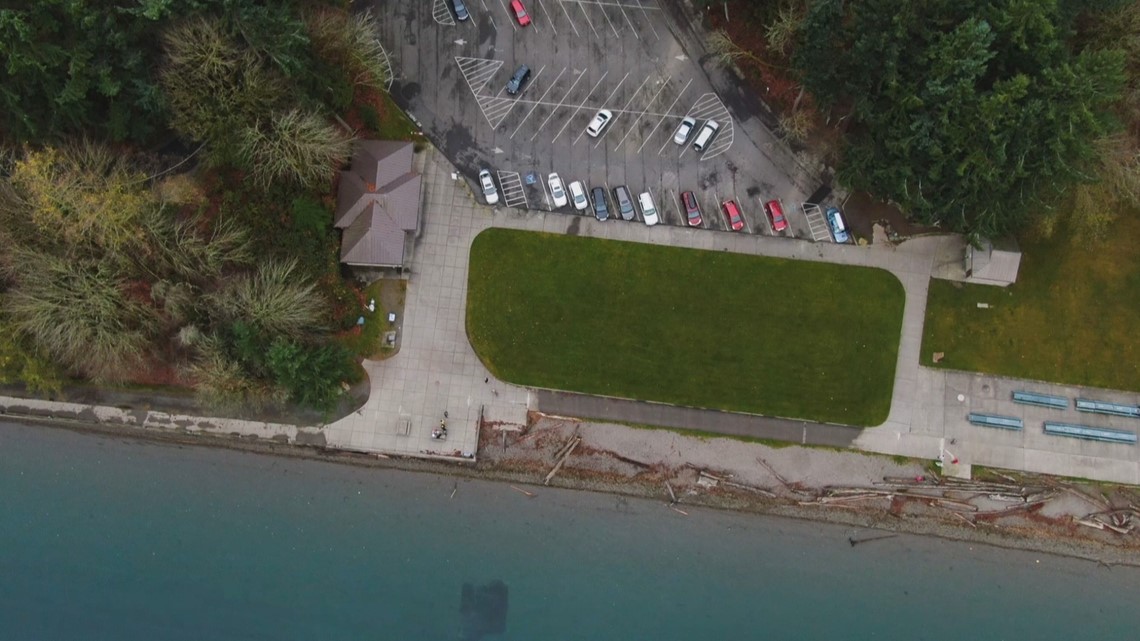
Other changes include new promenade walkways, new restroom facilities, and a pavilion.
“We don’t want to fundamentally change the character of Owen Beach, but rather redevelop it in a way that the same uses are here but in a long term manner that is more sustainable,” Stump explained.
Metro Parks Tacoma is making this project happen using bond funds as well as a Washington state recreation grant.
“Tacoma was fortunate that we were selected as a candidate city for the study that UW and Washington Sea Grant conducted and this information, the information that we’ve learned, is being shared with coastal communities throughout Washington and Puget Sound,” Stump said.

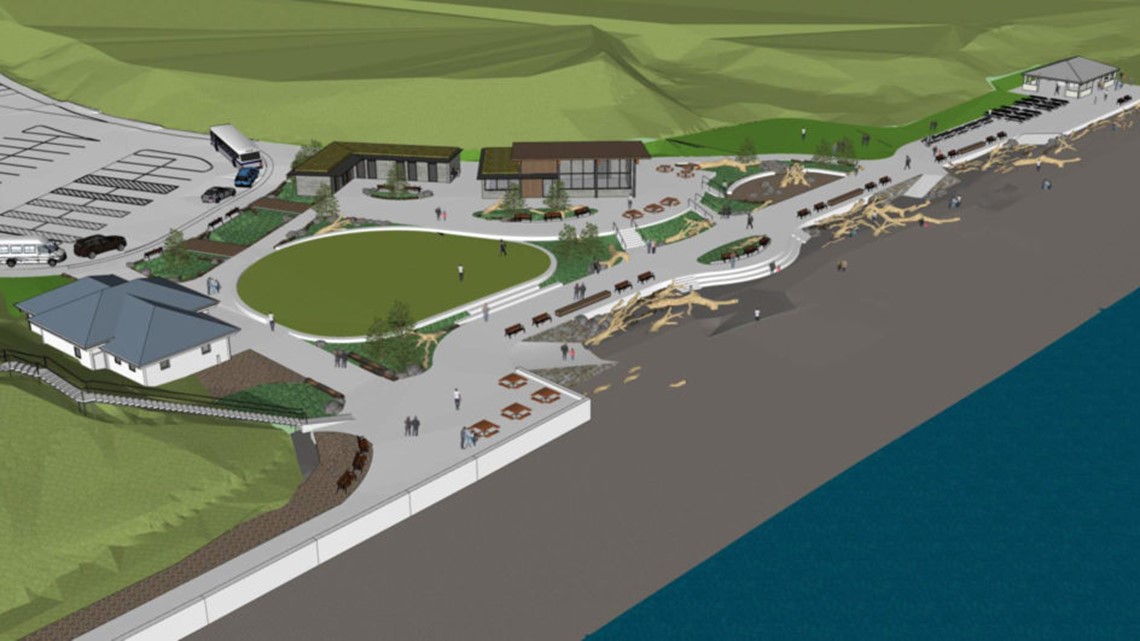
As Tacoma adapts to the effects of climate change, Stump emphasized, “Owen Beach is a great case study because it is a fairly contained site and we can monitor it and watch it and see how successful we are.” Stump added, “We are having similar conversations about Ruston Way and other areas within Tacoma.”
Construction to redesign Owen Beach is expected to start in summer 2020 and should take about a year to complete. Then it should be ready to weather the elements all the way to the end of this century.
The University of Washington Climate Impacts Group has several tools and visualizations you can access now, so you can plan too.

